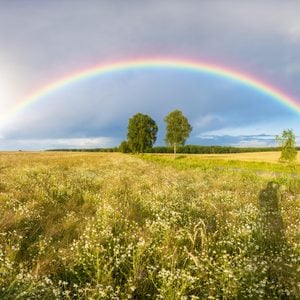The Unluckiest Year in Human History, According to Scientists
Updated: Apr. 02, 2021

The Black Plague's got nothing on what happened during this year!
Generally speaking, people living in 2019 are pretty fortunate when you compare modern times to the full scale of human history. Life expectancy hovers at around 72 years, and diseases like smallpox and diphtheria, which were widespread and deadly only a century ago, are preventable, curable, or altogether eradicated. But let’s journey back to a time when humans were not 7.7 billion strong, and a global catastrophe was about to warp Earth’s climate and decimate its population. It was a period so grim that scientists are calling the year it started “the worst year to be alive.”
No, we’re not talking about 1349, when the Black Death killed more than half of Europe’s population. Nor are we talking about 1918, when an influenza outbreak wiped out tens of millions. The unluckiest year to be alive, according to Science Magazine, was much further back in history: AD 536.
This year was during a period medieval historians call the Dark Ages, and it was in 536 that that name took on a literal meaning. An enormous volcanic eruption in Iceland launched massive amounts of ash into the sky. The ash would create a “mysterious fog,” blocking out the sun over several continents. And this fog would last for 18 months. Read about some more disturbing historical facts you didn’t learn in school.
And it wasn’t just the dark skies that made this eruption so catastrophic. Because of the obscured sunlight, temperatures plummeted—China experienced below-freezing weather in midsummer—and crops failed throughout Asia, Europe, and the Middle East. People starved to death on a massive scale. And the medieval world still couldn’t catch a break. In 541, the Bubonic Plague reared its ugly head for the first time, long before its better-known outbreak in the 12th century. Historians call this outbreak the Plague of Justinian, and it wiped out an estimated 33 to 50 percent of the Eastern Roman Empire.
Modern scientists and historians have long known about this sudden bout of darkness, but the exact cause remained a mystery until recently. A Cambridge University study published in November 2018 theorized that a volcanic eruption triggered the widespread darkness. That knowledge allowed the authors of the study to come to a definitive conclusion: The year 536 was as bad as years come. “It was the beginning of one of the worst periods to be alive, if not the worst year,” Michael McCormick, a Harvard University historian who co-authored the study, told Science. You may not be able to choose what year you’re born, but you can make your own luck by avoiding these household items that could bring bad luck.



